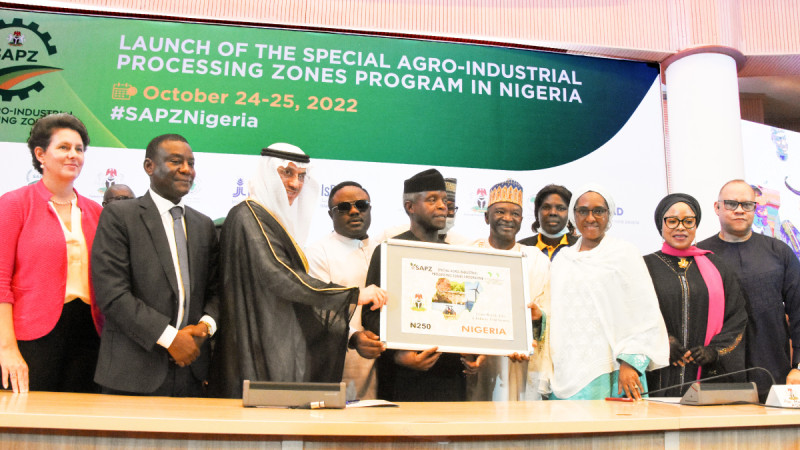In a keynote address at the BusinessDay CEO Forum in Lagos, President Akinwunmi Adesina of the African Development Bank (AfDB) disclosed that 20 states in Nigeria have expressed their interest in accessing over half a billion dollars in international financing to establish agro-industrial zones within their respective regions. Adesina stressed the importance of agriculture as a major wealth-creating sector and emphasized the critical role of financing in its development. Last year, the AfDB, along with the International Fund for Agricultural Development and the Islamic Development Bank, approved $540 million to support the establishment of Special Agro-Industrial Processing Zones (SAPZs) in nine states.
While Adesina did not disclose the names of the states that have shown interest in the second phase of the program, it is worth noting that the pilot phase resulted in a significant increase in production in the states that had previously accessed the funds. The program targeted the production of key commodities such as rice, cassava, cocoa, beef, dairy products, tomatoes, maize, ginger, groundnuts, sesame oil, poultry, and fisheries across various states.
Adesina highlighted the urgent need for bold policy measures and infrastructure development to drive the structural transformation of agriculture in Nigeria. He emphasized the importance of SAPZs, which will provide the necessary infrastructure and logistical support to enable food and agriculture companies to process and add value to agricultural commodities. The establishment of SAPZs aims to turn rural areas from zones of economic misery into new zones of economic prosperity, benefiting every part of the country.
The annual BusinessDay CEO Forum serves as a platform for decision-makers from both the private and public sectors to discuss emerging opportunities and challenges in their organizations. This year’s event, held in Lagos with the theme “Charting a Course to Growth and Development,” explored strategies required for business leaders to reposition themselves for economic growth.
Meanwhile, the Ministry of Mines and Steel Development has commenced the third round of a training program for skill acquisition in the jewelry and gemstone sub-sector. Funded by the World Bank through the Mineral Sector Support for Economic Diversification Project (MinDiver), the program aims to equip graduates with the necessary skills to compete globally. The induction of 22 trainees took place at the Ministry’s Jewellery Training Centre in Abuja. The program, which began in November 2021, aims to develop the downstream sector of the industry, create employment opportunities, alleviate poverty, and promote wealth creation. The trainees were advised to take the program seriously, as it would provide them with valuable skills for entrepreneurship and potential employment opportunities. The project coordinator emphasized the importance of respect for instructors and adherence to program rules.
Additionally, a team of local and international consultants and instructors visited the Ministry of Mines and Steel Development to discuss plans for equipping the trainees with the best skills within the allocated timeframe. The team’s visit aimed to ensure the achievement of the project’s objectives and included trainers from Sri Lanka and the United States, among others.
The initiatives by the Ministry of Mines and Steel Development and the ongoing support from the World Bank reflect Nigeria’s commitment to diversifying its economy and empowering its workforce through skill acquisition and development in various sectors.









